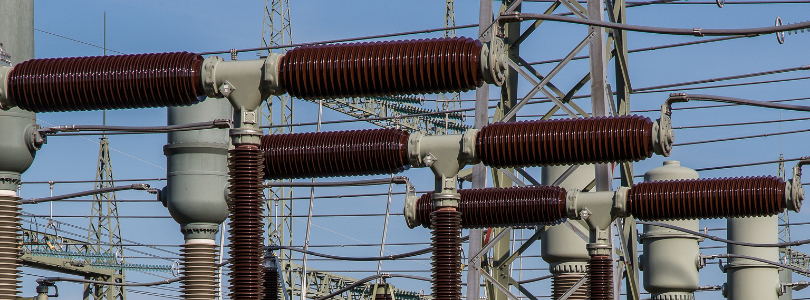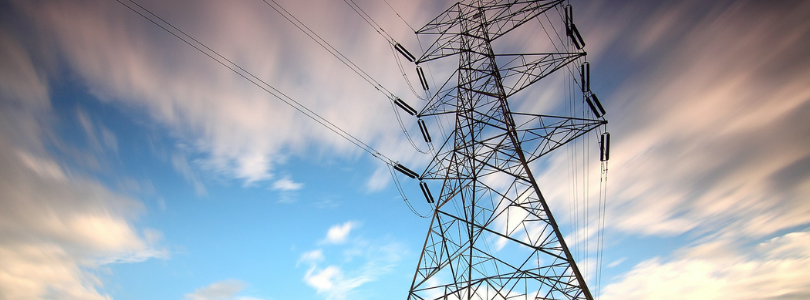Generally speaking, electricity supply exceeds demands, but when there is any disruption at power plants or the supply source it can lead to brownouts. With the installation of a UPS and backup generator, it is possible to avoid fluctuation issues such as brownouts or power surge and remove the reliance on electricity provided by the grid.
What is a Brownout?
A brownout occurs when the voltage dips below the usual mains supply level and can last from a few seconds to hours or even days. When the weather conditions worsen or there is a growth in power demands, the additional strain on the electricity network may result in a brownout. Intentional brownouts take place too, controlled by the National Grid when they are looking to ration supplies and prevent a possible blackout. The term brownout stems from incandescent lighting dimming as the voltage is reduced.
Brownout Indicators

Voltage reduction is often imposed to reduce load and prevent a power outage, with common signs of an electrical system brownout including:
- Flickering lights
- Electrical appliances switching off & on again
- Intermittent internet connections
- Disruption to air conditioning
- Security system outage
What Causes a Brownout?
The demand for electricity is continuously fluctuating with power companies using their networks of generators, sub-stations and transformers to deliver electricity to their customers. Our power consumption as a nation varies and so the National Grid has a constant balancing act on its hands, sometimes leading to an unplanned outage, leaving affected homes and businesses without power.
The National Grid has previously shown strain due to power demand, with at least four market warning notices issued last winter.
When the demand pushes the energy provider to capacity, the solution is to put an intentional limit on the flow of electricity, meaning the power continues to remain on but at lower voltage levels until the demand reduces. Brownouts can also occur as a result of damage or malfunction within the grid or at the power source. This is not ideal for businesses, healthcare facilities, finance companies or server locations that rely on continuous power. Fluctuations in power can cause equipment to malfunction. Loss of power to industries such as these can have disastrous effects on security, reputation and could be life-threatening.
Brownouts and Power Outages Caused by Weather

Planned outages are a lot easier for businesses and organisations to handle than an unforeseen dip or cut in electric power due to bad weather. In adverse weather conditions, there can be a huge surge in demand for power to keep homes warm and the lights on, and the power companies have to enforce brownouts to balance supply and prevent blackouts.
Equally, at the height of summer, air conditioning usage can shoot up causing a spike in the demand for power and energy providers may enforce voltage reductions until reserves are restored.
What’s the Difference Between a Brownout and Blackout?
Blackouts are when the power switches off completely, rather than a temporary reduction in voltage.
Power cuts or blackouts are however often less damaging and disruptive than a brownout, because when devices continue to receive power at lower levels, some may malfunction. A reduced level of electric current may leave electronic devices like consoles, computers or televisions permanently damaged by fluctuations in electricity levels.
In the IT sector, it is paramount to protect IT loads and as such, a UPS and backup power supply are an ideal solution to bear the load should there be any issues with the National Grid. Uninterruptable power supplies (UPS) maintain the correct level of voltage when there are dips. In a brown out a UPS will take over and will ensure that your equipment has the required voltage to fully operate and will protect it from any disturbances, before potentially handing over the task to a generator.
Too much electrical load can also cause equipment to malfunction. A UPS also act as a surge protector for electronic equipment.
Put a Stop to Power Failure
Working with a huge variety of clients, the team at Shenton Group are well equipped to protect you from any power interruption. We assess your demands and put forward a plan so that in any outage, grid malfunction or temporary brownout scenario, is managed and your power supply protected. With uninterruptible power supply options available to monitor the electrical power, it is possible to prevent a surge or brownout and keep the lights, equipment and security measures on.
Shenton Group is the UK’s leading technical expert in standby power, uninterruptible power supplies, and combined heat and power, and we keep the power on and businesses operating.
Already have an existing generator or UPS on site? We offer maintenance services to ensure the battery and key components in your UPS system are prepared and all the elements of your backup generator primed and ready to go. Visit our maintenance section for more information.
How important is power continuity to your business? Click here to download your FREE guide to
planning a resilient disaster recovery plan, including a business continuity plan. Alternatively, get in touch and speak to our technical experts. The Shenton Group team will be more than happy to assist you in putting a resilient plan in place and can explain all of the options available to you.
Minimise both power surge inconvenience and potential brownout damage with the help of Shenton Group. Get in touch today.

